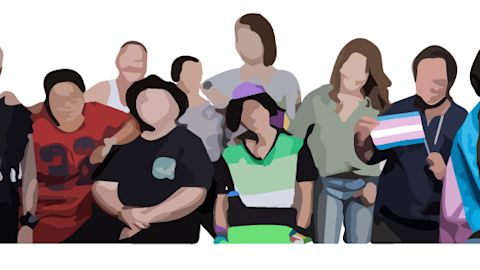You can always work on becoming a trans ally with some tips from ACON.
What it means to be an ally
An ally is someone who supports and advocates for a community other than their own. Becoming an ally is an ongoing process that you must continually work towards. It’s not just a label you can give yourself.
Why being a trans ally matters
Instead of being celebrated, acknowledged, and feeling safe in our communities, transgender people often experience transphobia in many ways every day. Transphobia describes negative attitudes and feelings towards trans and gender diverse people and their communities in general. Trans people experience higher rates of stigma, discrimination and abuse, leading to higher rates of anxiety, depression and suicide.
Sadly, the trans community is less likely to feel accepted by the public in everyday life. The Private Lives 3 study (2020) found that only 23% of the trans community feel accepted in public. The same study found that just 32% felt accepted when accessing health or support services, and only 38% felt acceptance with family members.
Anyone who is cisgender – whether straight or LGBQ+ – should work on becoming a transgender ally.
Here are 7 ways to start becoming a better ally
- Keep in mind that gender identity and experience are unique. Don’t make assumptions about someone’s experience.
- Be open minded – don’t be afraid to confront your own prejudice and bias.
- Be mindful that some questions are harmful curiosities and do not need to be asked.
- Defend trans people against discrimination – let people know that anti-trans jokes and commentary are harmful. Being visible and active in your allyship is very important.
- Be a listener – watch and listen to trans issues in media and learn about the experiences of the trans community.
- Remember that LGB people can, and should, be allies to the trans community.
- Acknowledge trans people are people and should be treated with dignity and respect.
Useful definitions
Cisgender or cis people identify with the sex they were assigned at birth.
Transgender or trans people are those whose gender does not align with the sex they were assigned at birth.
Non-binary describes people who don’t identify as male or female. These people live as both, either, or no gender. Some non-binary people identify as trans, some do not.
Gender diverse is an umbrella term that encompasses a range of different gender identities.
Being an active ally requires continued learning. If you want to find out more, check out Pride Training from ACON.
ACON is Australia’s largest health organisation specialising in community health, inclusion and HIV responses for people of diverse sexualities and genders.
For more information on the trans community, please check TransHub.
For further support, please see Lifeline: 13 11 14
Published 29 March 2023, updated 13 April 2023



